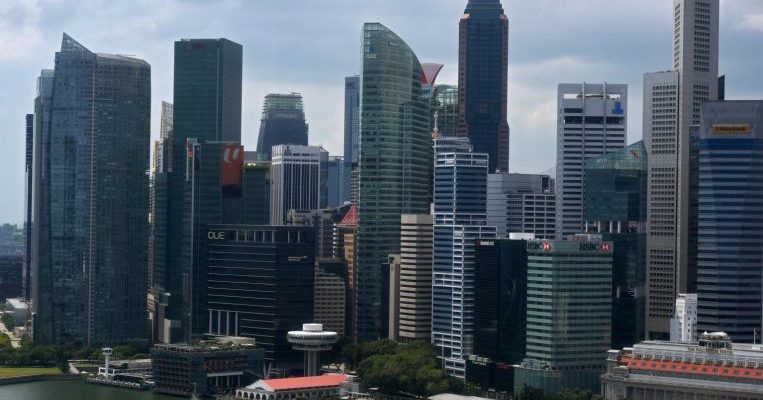
SINGAPORE – Despite heightened global trade tensions and increasing disruption, 92 per cent of chief executive officers (CEOs) in Singapore remain confident about the growth prospects of their companies for the next three years, according to professional services firm KPMG’s global CEO outlook study released on Monday (June 3).
However, their confidence in the global economy dropped to 64 per cent, from 77 per cent last year.
The study gives a three-year outlook from international executives on enterprise and economic growth. Conducted between January and February, the 2019 survey covered 1,300 CEOs in 11 key markets and 11 key industry sectors. One-third of the companies surveyed have more than US$1 billion in annual revenue.
Only 28 per cent of CEOs in Singapore expect a revenue growth of 2 per cent and above, in contrast to close to half (46 per cent) of global CEOs expecting it.
This is because trade is the key driver of growth for Singapore, said Ong Pang Thye, managing partner of KPMG in Singapore. “The initial rounds of uncertainty from the trade tensions have dampened Singapore CEOs’ confidence in the global economy and their expectations of top-line growth, Mr Ong said.
In the medium term, however, the trade tensions could prompt US, China and other multinational corporations to shift some components of their supply chain towards South-east Asia, which will create higher demand and a knock-on positive effect on growth for Singapore firms with South-east Asian presence, Mr Ong noted.
“If companies are agile enough to seize this window of opportunity, they will capture the growth they seek,” he added.
Operational risks emerged as the top threat to growth for Singapore and Asean CEOs this year, KPMG’s study showed.
“The escalating US-China trade tensions have created new business risks that are translating into operational risks for companies,” KPMG said in a media statement on Monday.
CEOs are now concerned about sustaining their operations in their current form, and would need to consider multiple scenarios to address the uncertainty.
Other major risks cited by Singapore CEOs this year include cybersecurity risk, emerging technology risks, protectionism and environmental risk.
In terms of key drivers of growth, 32 per cent of Singapore CEOs said that mergers and acquisitions (M&A) are the most important strategy for them to build size and scale quickly over the next three years. This is almost double compared to their global peers (17 per cent).
Two-thirds of global CEOs are targeting emerging markets for geographical expansion in the next three years, with the Belt and Road Initiative (BRI) viewed as a significant growth opportunity.
Said Mr Ong: “China knows that they need to work on the BRI projects with an additional partner, and Singapore is beginning to fill that role from a position of trust and skill.”
This is because Singapore has a longer history of working with China and other global infrastructure players, and is often viewed as a skilled partner in negotiation, he added. Singapore also has a developed legal system and is favoured as a mediation and arbitration hub for cross-border disputes.
“Singapore companies and private equity funds should recognise the enormous opportunities the BRI present and tap on these to take themselves to the next level of growth,” he said.
Among global CEOs, 94 per cent were bullish about their companies’ prospects, while 62 per cent were confident about the global economy.
Some 84 per cent of CEOs around the world believe a “fast-fail” culture – or learning lessins from failures quickly – is required in today’s marketplace, although only slightly more than half (56 per cent) said that kind of culture is in place at their organisation.
This disconnection in innovation is even greater in Singapore. While 92 per cent of CEOs in the city-state said they want their employees to feel empowered to innovate without worrying about negative consequences, only 40 per cent said their organisation has a culture where “fast-failing” innovation is celebrated.
